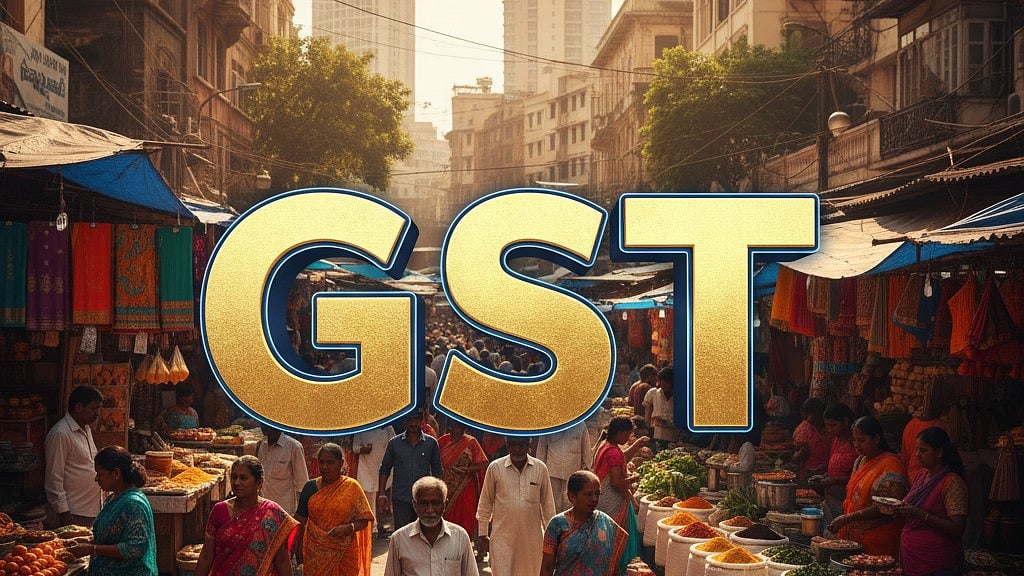**GST 2.0 Comes Into Effect: 10 Key Reforms Businesses and Consumers Must Know**
*New Delhi:* The government’s overhaul of the Goods and Services Tax (GST), dubbed GST 2.0, has officially come into effect today, September 22. This marks the second major reform since GST was introduced in 2017 and introduces a range of tax rate cuts and policy changes across various sectors.
From insurance exemptions to price cuts in the FMCG sector, here are 10 key reforms under GST 2.0 that both businesses and consumers should be aware of:
### 1. Life Insurance Now GST-Free
All individual life insurance products, including term insurance, endowment policies, and Unit Linked Insurance Plans (ULIPs), are now exempt from GST. This exemption also covers the reinsurance of these policies.
### 2. Health Insurance Exempted
Individual health insurance policies — including plans for families and senior citizens — are now fully exempt from GST. This move aims to make health coverage more affordable for the general population.
### 3. Changes in Passenger Transport Taxation
Road passenger transport continues to attract 5% GST without Input Tax Credit (ITC). However, operators have the option to pay 18% GST with ITC. For air travel, GST remains at 5% for economy class tickets and 18% for premium classes.
### 4. GST on Local Delivery Services
Local delivery services offered via e-commerce platforms by unregistered providers will now see the GST liability shift to the e-commerce operator. Registered service providers will remain responsible for their own tax payments. These services are taxed at 18%.
### 5. No Full GST Exemption for Medicines
Medicines will continue to be taxed at 5%. The Finance Ministry clarified that completely exempting medicines would prevent manufacturers from claiming ITC on inputs, potentially increasing production costs.
### 6. Leasing and Renting Goods
The GST rate on leasing or renting goods without an operator will now align with the GST rate applied on the sale of those goods. For example, leasing a car without a driver will attract the same 18% GST as its sale.
### 7. Revised GST Rates Apply to Imports
From today onwards, Integrated GST (IGST) will be levied at the newly revised rates under GST 2.0 for all imports unless a specific exemption has been announced.
### 8. Tax Structure for Milk Products
Ultra High Temperature (UHT) milk from dairy sources is now fully exempt from GST. On the other hand, plant-based milk alternatives such as almond, soy, and oat milk will be uniformly taxed at 5%, down from the previous 12% to 18%.
### 9. Reduced GST on Personal Care Products
GST rates on certain personal care items like face powders and shampoos have been reduced. The Finance Ministry stated that this change aims to streamline the tax structure rather than favor large companies.
### 10. Price Cuts Across FMCG Sector
Major FMCG players such as Dabur, Nestlé, ITC, and Hindustan Unilever Limited (HUL) have reduced product prices in response to the new tax structure. For example, Dabur’s Real Juice (1L) is now priced at Rs 122, down from Rs 130. Nestlé has cut Rs 30 off the price of Nescafé Classic (45 gm), bringing it down to Rs 235. These price reductions are expected to boost consumption ahead of the festive season.
—
With the GST Council’s September 4 decision now in effect, the earlier four-tier tax structure (5%, 12%, 18%, and 28%) has been simplified to a two-tier system of 5% and 18%. Ultra-luxury items will attract a 40% tax rate, while sin goods like tobacco will continue to be taxed at 28% plus applicable cess.
Stay tuned as GST 2.0 reshapes India’s taxation landscape, aiming to simplify compliance and reduce costs for businesses and consumers alike.
https://www.freepressjournal.in/business/gst-20-kicks-in-with-major-tax-cuts-10-key-reforms-you-must-know-about



